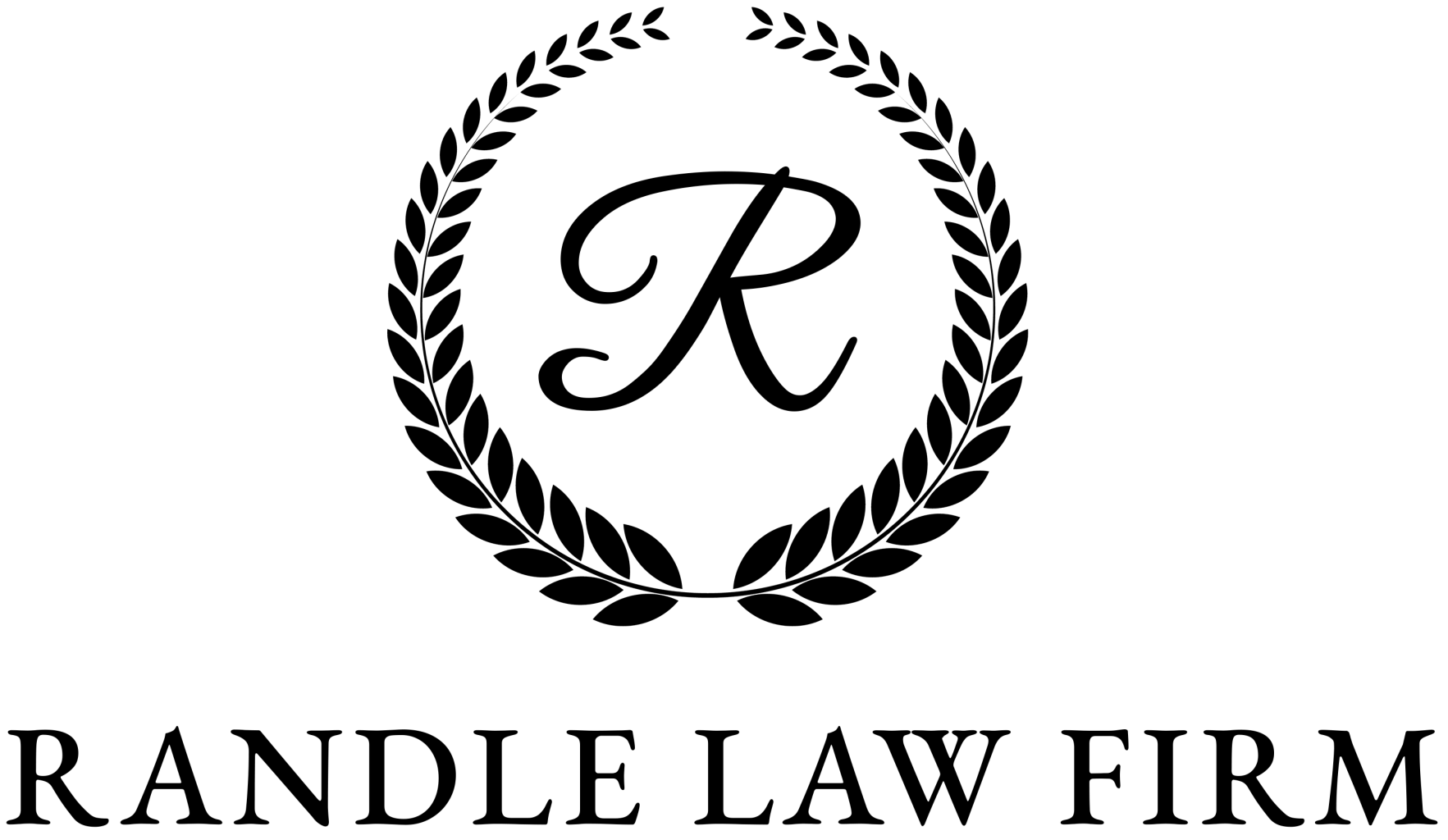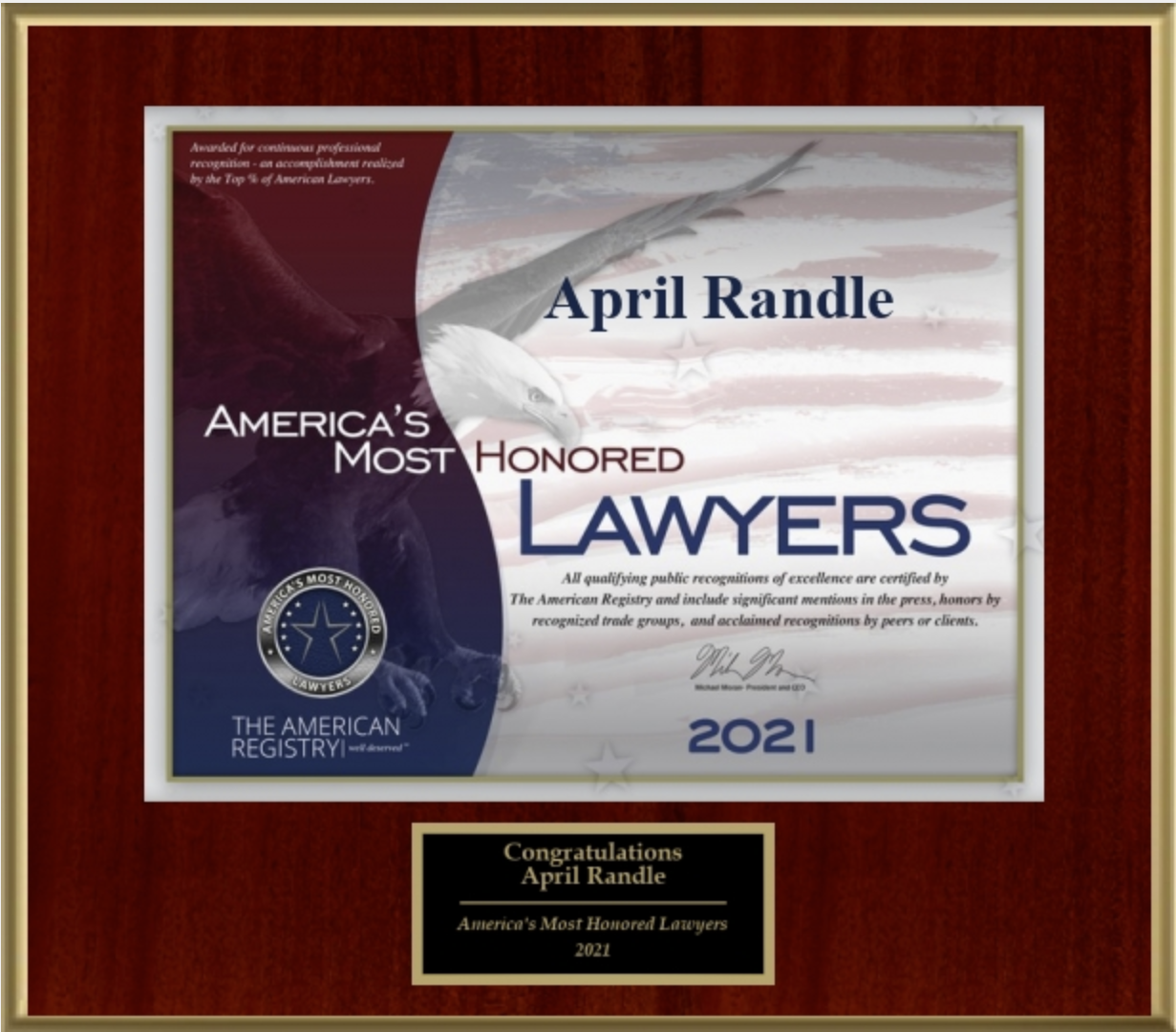Location:
8898 Old Lee Hwy
Suite 106
Ooltewah, TN 37363
Email: april@aprilrandlelaw.com
Phone: 423-521-8000
Fax: 423-521-8001
Estate Planning and Probate
What Is Estate Planning In Tennessee?
Many people have heard of estate planning. Some say it is only for the wealthy or something you should do in "old age." Others think of estate planning as the creation of their Last Will and Testament to name who inherits property when they pass away.
An estate plan
usually
involves a will, but it covers so much more. It is definitely not just for the wealthy, and it is not something to postpone until later in life. Unfortunately, we don't always live as long as we anticipate or desire. Sometimes life just happens. In that case, a lack of planning rarely results in the outcome that would have been realized had decisions been made prior to a life-altering event.
Therefore, a comprehensive estate plan is the thoughtful and well-advised decision-making process for incapacity during life, end-of-life decisions before death, and guidelines for your finances, minor children, and your legacy after you are gone. It is also much more than a set of legal documents.
Last Will and Testament
A document known as a Last Will and Testament is a common estate planning tool; although, a will only takes effect upon a person's death. A will must be probated, or, offered to the Probate Court for the administration of any assets that were not disposed of another way (i.e. - accounts with no direct beneficiary named or property that doesn't transfer to a joint owner). A will is often coupled with other legal documents, such as a Revocable Living Trust, but the provisions in your will may state who should be appointed, if necessary, to oversee your financial affairs and who should take custody and financial care of your minor children or other dependents.
Without a will and other forms of planning, the laws of the State of Tennessee determine how your assets are distributed.
Whether you have a will or not, if probate court is involved, it typically means a formal process where accounts and assets are frozen until creditors can be officially notified, claims can be filed, all assets are identified and all other matters are wrapped up. Because of costs and delays, other forms of planning, like trusts, are becoming more popular and a better option no matter your level of wealth.
Advance Care Directive
An Advance Health Care Directive, sometimes referred to as a "living will" is a document that outlines specific instructions relating to your health in the event you cannot make decisions or speak for yourself. Stipulations about the course of treatment and the use of feeding tubes and life support are examples of issues addressed in these documents.
Without an Advance Care Directive, a physician or family member will be left to decide, and it may not necessarily be in accordance with your wishes.
Health Care Power Of Attorney
A Health Care Power of Attorney is often used in conjunction with a living will or an Advance Care Plan. Whereas an Advance Directive or Care Plan states your preferences for end-of-life decisions, a Health Care Power of Attorney names an agent, also called an attorney-in-fact, who steps into your shoes to oversee any and all aspects of your medical care when you cannot speak for yourself. The document outlines the exact authority of your agent, when that authority takes effect, and when it will end. This authority can include making decisions for beginning a new medication, withdrawing a treatment plan, requesting and reviewing medical records, and changing physicians.
Durable Power Of Attorney
Similar to a Health Care Power of Attorney, a General Durable Power of Attorney, or a "POA" grants a person authority to make financial decisions on your behalf if you are incapacitated or unable to handle matters by yourself.
A financial Power of Attorney often gives your agent the authority to pay your bills, manage investments, sign financial documents, contact financial account holders, vote, and/or handle any other aspect of overseeing your financial decisions. You can grant broad powers or you can limit your agent to certain decisions. You may revoke the authority at any time or name someone else to act on your behalf if so desired. The authority granted in this legal document ends upon death.
Help From An Experienced, Trusted Attorney
I am attorney April Perry Randle and have been practicing law for over 22 years. A majority of my practice in Chattanooga, Tennessee, involves creating customized estate plans for individuals and families to ensure their wishes are carried out upon their passing. Planning also involves documents that take effect should you become incapacitated or have a disability that prevents you from handling matters without another person's help.
Creating The Right Estate Plan For You
Perhaps you are looking to name someone to make decisions for you in the event you cannot. Perhaps you are looking to name a particular beneficiary to receive your property upon your passing. I invite you to schedule an appointment to discuss your desires and let us customize a plan that is right for you.
We serve clients on an "appointment only" basis. To learn more about our practice areas or to set up a consultation, please complete our contact form.
Serving Ooltewah, Chattanooga, and Surrounding Communities.

I definitely recommend Mrs. Randle for your needs requiring an attorney.
-Tasha L.
MashIt
Extremely kind, straight forward and helpful. Looking forward to working with her and her law firm.
-Rebekah C.
FabuFit
Friendly, confidential, personalized service, and exceptional rates make April's firm an excellent choice for your legal needs 10/10!
-D. W.
YesSuits-

Awesome people to work with! Go above and beyond. Very responsive and very efficient.
- Chris
Button 
April and her staff are wonderful. When we needed some help with our business and understanding the laws in regards to business she was amazing and helped us so much!
-Marcie
Button-

April is too real to be a lawyer.
-Danny
Button 

Slide title
 Button
Button Button
Button Button
Button
Communications Preferences
If you are new to our office, please use our initial contact email link to schedule an appointment or request information.
Active Clients - Feel free to use the Client Portal for secure texting, messaging, appointment requests and document or information upload/review. You may also contact us by email.
In Person Office Visits - By Appointment Only
8898 Old Lee Hwy
Suite 106
Ooltewah, TN 37363
Law Office of April Randle, PLLC. All Rights Reserved.








